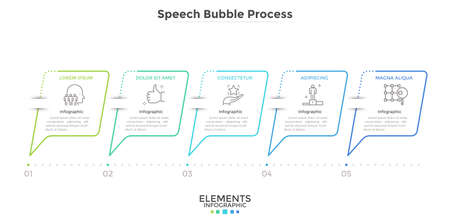Setting the Scene: The Landscape for Female Entrepreneurship in the UK
Across the United Kingdom, female entrepreneurship is undergoing a remarkable transformation. While women-led businesses are on the rise, the journey is often shaped by unique opportunities and stubborn challenges that are distinctly British. According to a 2023 report by The Rose Review, women in the UK established over 150,000 new companies last year—a record-breaking figure that signals progress yet still represents only a fraction of the country’s total business landscape. Cultural shifts have encouraged more women to step forward as founders and innovators, but deep-rooted barriers persist, from accessing funding to overcoming societal expectations. In particular, British women entrepreneurs often contend with the so-called “confidence gap,” as well as networking circles that have historically been male-dominated. Yet, there’s an unmistakable resilience and resourcefulness woven into the stories of these founders, reflecting both the grit and humour emblematic of British culture. Government initiatives like the Investing in Women Code and local enterprise partnerships are helping to level the playing field, while grassroots support networks are fostering collaboration over competition. This evolving ecosystem forms the backdrop for countless stories of perseverance—stories that inspire others to power through adversity and reshape what it means to be a woman in business across Britain today.
2. Surmounting Barriers: Real-Life Challenges and Turning Points
For many female entrepreneurs in the UK, the road to business success is marked by significant hurdles. These challenges are not just personal—they are systemic, shaped by social expectations, structural inequalities, and the unique landscape of British enterprise. Below, we outline some of the most common adversities faced by women founders, alongside pivotal moments that have fuelled their determination.
Common Barriers Encountered by Female Entrepreneurs
| Challenge | Description | Typical Turning Point |
|---|---|---|
| Access to Funding | Securing investment remains one of the steepest obstacles, with statistics consistently showing lower funding rates for female-led start-ups compared to their male counterparts. | Receiving a first significant investment or grant, often after numerous rejections. |
| Work-Life Balance | The expectation to juggle professional ambitions with family responsibilities is particularly pronounced in UK culture, often leading to burnout or difficult choices. | Establishing clear boundaries and support systems, sometimes sparked by a personal crisis or key mentor’s advice. |
| Lack of Representation | With fewer visible role models at senior levels, women often feel isolated in their entrepreneurial journey. | Connecting with networks like Women in Business or finding a peer group that shares lived experiences. |
| Cultural Stereotypes | Pervasive biases about leadership styles and risk-taking can undermine confidence and credibility in predominantly male sectors. | A defining moment might be successfully leading a high-stakes project or winning an industry award. |
Pivotal Moments: Stories That Spark Resilience
These obstacles are daunting, but it is often in overcoming them that female entrepreneurs discover their resolve. Take the story of Aisha, a tech founder from Manchester who struggled for months to secure seed funding. After being dismissed repeatedly in pitch meetings—often as the only woman in the room—she landed her first investor when she reframed her narrative to highlight her unique perspective as an asset rather than an exception.
Or consider Priya from London, whose childcare commitments nearly derailed her boutique consultancy. Her turning point came after joining a local co-working hub with crèche facilities—a practical solution rooted in community support that transformed her daily routine and enabled her business to thrive.
These moments of clarity and breakthrough are rarely solitary; they are shaped by supportive ecosystems, resourceful problem-solving, and an unwavering belief in the value of diverse voices within British entrepreneurship.

3. Stories of Resilience: Inspirational Case Studies
Across the UK, female entrepreneurs have demonstrated remarkable tenacity and ingenuity when confronted with daunting challenges. Their journeys are not just stories of personal triumph but also serve as beacons for others navigating similar landscapes.
Sarah Wood: Redefining Digital Advertising
Sarah Wood, co-founder of the tech firm Unruly, faced early scepticism about her vision in the male-dominated digital advertising sector. Starting out in East London’s burgeoning tech scene, she navigated funding hurdles and industry bias by building a company culture centred on transparency and inclusivity. Her commitment to innovative leadership enabled Unruly to become a global player, eventually being acquired by a major media group. Sarah’s journey highlights how resilience and authenticity can overturn traditional barriers.
Karen Blackett OBE: Championing Diversity in Media
As CEO of GroupM UK, Karen Blackett OBE is renowned for breaking glass ceilings in the British media industry. Growing up as a woman of colour in Reading, Karen overcame systemic barriers and limited representation through relentless advocacy for diversity and mentoring future leaders. Her resourcefulness in developing inclusive recruitment strategies has transformed organisational cultures and opened doors for many who previously felt excluded from the sector.
Holly Tucker MBE: Pioneering Creative Commerce
Holly Tucker’s path was anything but straightforward. After founding Notonthehighstreet.com from her kitchen table, she encountered financial obstacles and the challenge of convincing investors to back a business that celebrated small creative enterprises. Holly’s grit saw her through tough times; she leveraged grassroots community support and harnessed social media to build a loyal customer base. Her story underscores how adaptability and persistence can turn passion projects into enduring businesses.
Collective Lessons Learned
These British women entrepreneurs exemplify the power of resilience in action—whether it’s challenging stereotypes, rebuilding after setbacks, or innovating against the odds. Their stories reinforce the importance of staying true to one’s values while remaining open to new solutions. Through their determination, creativity, and resourcefulness, they have not only built successful businesses but also paved the way for future generations of UK entrepreneurs.
4. Community and Collaboration: The Power of Networks
Across the UK, the importance of community and collaboration for female entrepreneurs cannot be overstated. The nation’s diverse business landscape—spanning London’s financial heart to the creative hubs of Manchester, Bristol, and Edinburgh—offers a rich tapestry of support networks tailored for women in business. These local communities serve as lifelines, providing advice, mentorship, and real opportunities for collaboration.
Local Networks: Foundations for Growth
Organisations such as Enterprise Nation, Women in Business Network (WIBN), and regional Chambers of Commerce provide structured platforms where women can connect, share knowledge, and access resources. These networks foster a culture of trust and open dialogue, allowing entrepreneurs to navigate challenges with greater confidence. For example, in Birmingham, peer-led groups offer monthly meetups focused on practical problem-solving, while in Scotland, dedicated accelerators help women scale their ventures regionally and beyond.
Mentorship: Learning from Experience
Mentorship is a cornerstone of progress for many female founders. Experienced business leaders often volunteer their time to guide newcomers through common pitfalls—be it funding applications or marketing strategies. This transfer of experience is particularly impactful in sectors like technology or finance, where women have historically been underrepresented.
| Region | Popular Network/Mentorship Programme | Main Focus |
|---|---|---|
| London | Enterprise Nation | Business Skills & Networking |
| Manchester | Women in Business Network (WIBN) | Peer Support & Collaboration |
| Edinburgh | Womens Enterprise Scotland | Leadership Development |
Collaboration: Strength in Diversity
The UK’s commitment to supporting entrepreneurship across cultures and regions means there is increasing emphasis on cross-sector collaboration. Female entrepreneurs are leading joint ventures that unite tech with creative industries, social enterprises with manufacturing, and more. These collaborations not only boost innovation but also create stronger resilience against adversity by pooling resources and expertise.
The Impact: Real-World Examples
The stories emerging from these networks are striking. In Cardiff, a group of women-led start-ups joined forces to lobby for better access to funding at local government level—successfully influencing policy change. Meanwhile, rural collectives in Yorkshire have enabled small-scale female producers to export goods internationally through shared logistics and marketing efforts.
A Blueprint for Future Success
The power of networks lies not just in shared experience but in tangible outcomes: increased business survival rates, faster growth trajectories, and greater visibility for female founders. As more women tap into these resources across the UK, the collective impact continues to grow—proving that community and collaboration are indispensable tools when powering through adversity.
5. Practical Insights: Lessons Learned and Advice for Aspiring Entrepreneurs
Gathering Wisdom from Trailblazers
One recurring theme among successful female entrepreneurs in the UK is the value of learning from both triumphs and setbacks. Many founders emphasise the importance of resilience, urging newcomers to view challenges not as roadblocks, but as stepping stones to personal and professional growth. “Every knock-back taught me a new way forward,” says Amelia, founder of a thriving tech consultancy in Manchester. This mindset shift can make all the difference when adversity strikes.
Building Your Support Network
Another key lesson is the power of community. Nearly every entrepreneur interviewed stressed how vital it is to seek out mentors, allies, and peers who understand your journey. Whether through local business forums or women-led networking groups, having a reliable support network offers both practical advice and much-needed encouragement during tough times.
Embracing Adaptability and Continuous Learning
Adaptability has also proven essential for sustained success. The UK’s business landscape can change rapidly—political shifts, economic uncertainty, or even evolving consumer trends require founders to stay agile. Female leaders recommend investing in lifelong learning, whether through short courses or simply staying curious about industry developments. As Sophia, who runs a sustainable fashion label in London, puts it: “Never be afraid to pivot your approach if something isn’t working.”
Championing Authentic Leadership
The stories collected highlight that authentic leadership resonates strongly with British consumers and employees alike. Being transparent about your values, vision, and even your vulnerabilities can foster trust and loyalty in ways that traditional top-down management does not. Aspiring founders are encouraged to lead with integrity and let their unique perspective shape their company culture.
Words of Encouragement for the Next Generation
If there is one message these experienced entrepreneurs want to pass on, it’s this: don’t wait for perfect conditions to start your journey. Use what you have now, learn as you go, and remember that perseverance often outweighs perfection. As the UK continues to champion diversity in entrepreneurship, the experiences shared by these women serve as a wellspring of motivation for anyone ready to take the leap.
6. Looking Forward: Trends and Hopes for the Future
As we reflect on the journeys of female entrepreneurs across the UK, it’s clear that their stories are shaping not just business landscapes but also wider cultural attitudes. The momentum built by these women is now influencing emerging trends in entrepreneurship, with a particular focus on technology, sustainability, and inclusive leadership. More women are founding tech start-ups and social enterprises, bringing fresh perspectives to sectors historically dominated by men. This shift is visible in initiatives like women-led investment networks and peer mentoring programmes popping up in cities from Manchester to Edinburgh.
However, persistent challenges remain. Access to funding continues to be a significant hurdle; statistics show that female founders still receive only a fraction of venture capital compared to their male counterparts. Networking opportunities and representation at senior levels also lag behind, despite improvements in recent years. Addressing these issues calls for coordinated efforts—both from government policy and private sector commitment—to create truly level playing fields.
Amid these hurdles, there is growing optimism. The evolving role of women as innovators is undeniable; they are driving change not just within their businesses but across whole industries. Their resilience and collaborative approaches foster more adaptive and forward-thinking organisations. As more young women see role models blazing trails in science, engineering, creative arts, and digital sectors, aspirations are rising accordingly.
Looking ahead, the hope is for even greater visibility and support for female entrepreneurs. Programmes that encourage girls to pursue STEM subjects at school, alongside robust support structures for women returning to work or shifting careers, will be crucial. The future of UK innovation depends on harnessing the full spectrum of talent available—ensuring that no one’s ambition is limited by gender.
Ultimately, powering through adversity has become more than a narrative—it is a catalyst for transformation across British society. As we champion these trailblazers today, we lay the groundwork for a future where every woman with an entrepreneurial spark can turn her vision into reality.


